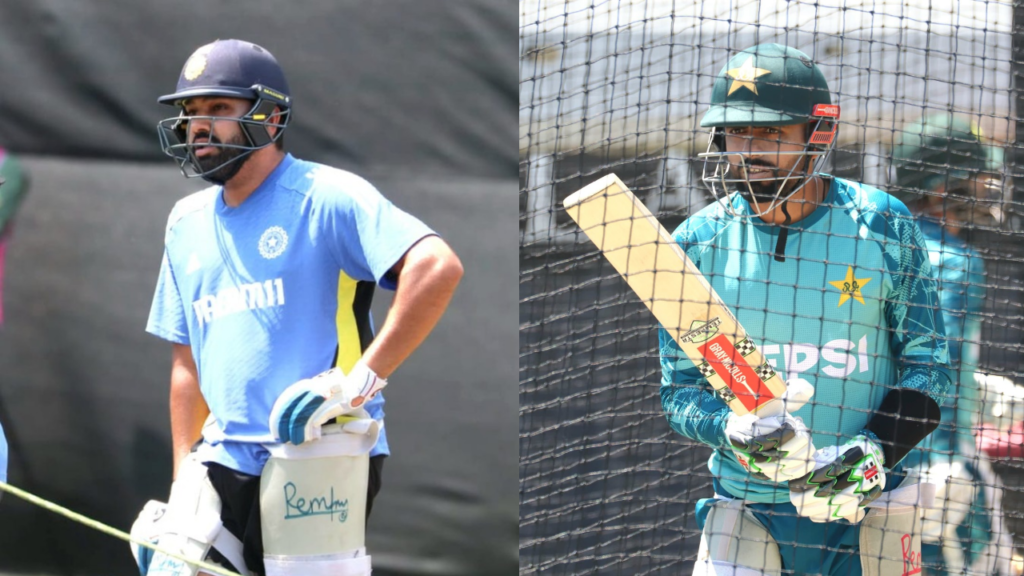
It was two hours after the India-Pakistan World Cup match had ended on June 16, 2019, and the Curry Mile in Manchester was a sight to behold. One side of the road was dark, and all the Pakistani restaurants looked deserted. On the other side, every Indian restaurant was full and every possible dance form conceivable could be glimpsed. People were dancing to the dhol, and the bhangra was impromptu and full of energy. The tricolour was everywhere and the party had just begun. India had once more beaten Pakistan in a World Cup encounter, and yet again, it was a one-sided contest.
For the rivalry to retain its charm, we needed an improved Pakistan. The cricket world needs a Pakistan which is not a pushover, and one that can stand up and compete. The Champions Trophy final in 2017 was an aberration, and till 2019 at least, India were a far superior side. In 2021, things seemed to change with Pakistan recording a thumping win in the T20 World Cup in Dubai. But in 2022, it was a Virat Kohli miracle that settled things for India. And thereafter, at the 2023 World Cup, it was back to square one. Pakistan could not compete, and the eagerly anticipated match was a damp squib.
In fact, every former Pakistani cricketer and journalist that I spoke to yesterday agreed that India start overwhelming favourites, and it would be a real surprise if Pakistan managed to beat Rohit Sharma and his team. Unless the pitch plays havoc, Pakistan are rank underdogs was the consensus. That’s not what this rivalry needs going forward. Unless there is competition, there is no needle. Fans, after a point, would not want to watch one-sided games, and would take them for granted. Frankly, the India-Pakistan contest has, for some years, been an overhyped spectacle which the cricket world can live without.
That’s why Dubai 2021 was significant. A resurgent Pakistan led by Babar Azam and Shaheen Shah Afridi tore into an undercooked India and made a real statement. Mohammed Rizwan, at the top with Babar, was all of a sudden a force to reckon with, and we had a contest on our hands. Something that could truly be labelled the world’s most intense cricketing rivalry.
But then, was it an aberration? Can Pakistan bring the same intensity tonight? The players need hand-holding, and on the evidence so far, Babar has not been able to do the job well.
For the record, Pakistan started poorly in 1992 as well. They were on the verge of elimination from the World Cup before Imran Khan, supported by the brilliance of Wasim Akram and a young Inzamam-ul-Haq, brought them back from the brink to win the tournament. The truth is, Babar has to grow in stature before he can command the same respect that Imran did as a player.

So what’s the fate of the India-Pakistan rivalry going forward? Will fans continue to embrace it the way they have in the past? Put bluntly, can the political significance attached to an India-Pakistan rivalry keep adding gloss to it going forward?
While there is no definitive answer to this question just yet, suffice to say the evidence on hand conclusively proves that the adage that sports and politics don’t mix is wrong. It is because sports and politics always get mixed up in the sub-continent that India-Pakistan is still the contest that it is. People watch it because there is something more than cricket attached to the contest. While cricket is the centre piece, the extraneous factors attached to it make victory in this contest a huge deal. Days and weeks before the match, tickets are usually sold out, and there is a concurrent viewership of millions for the host broadcaster.
With a lot at stake tonight, we can safely say that the fan banter will continue for the next 18 hours at least. Cricket needs this rivalry, and it seems things might get back on track unless the pitch takes centre stage.
Also Read: From bragging-right game to near-knockout: How Pakistan’s loss changes everything for Sunday



